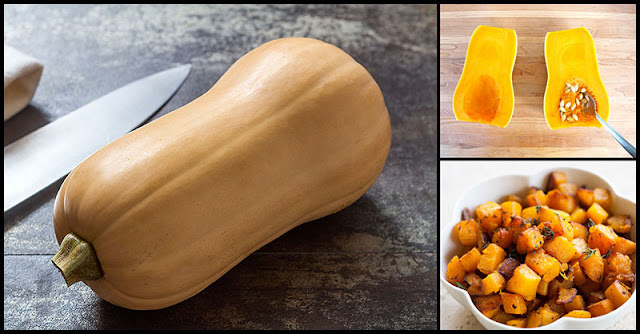Some people may think that pumpkins or butternut squash are just for Halloween decorations or Thanksgiving pie filling. Well, it’s time to rethink about this nutritious orange plant.
Throughout the world, squash is considered to be the most delicious and versatile food. In terms of health benefits, it packs a serious punch. It has the ability to aid in skin care, strengthen the immune system, improve your vision, build strong bones, reduce the symptoms of insomnia, manage symptoms of diabetes, protect heart health, and prevents cancer. Furthermore, it also helps treat arthritis, eliminate parasites and infections, protect against birth defects, prevent inflammatory infections, eliminate ulcers, boost respiratory health, improve prostate health and reduce blood pressure.
Often defined as a vegetable, squash has high levels of carotenes and has built-in anti-cancer benefits. According to studies, carotenoid concentrations in the blood are biomarkers of vegetables and fruit that offer cancer protection. Moreover, it was concluded by one study that beta-carotene intake was strongly associated with reduced breast cancer risk.
What Is Beta-Carotene?
Beta-carotene is the main safe dietary source of vitamin A, essential for normal growth and development, immune system function and vision. It is an anti-oxidant that prevents cell damage from aging and exposure to pollutants. A Harvard study reveals that younger men who follow a diet rich in beta-carotene had a lower risk of prostate cancer. Also, it can lower the risk of developing asthma.
Along with protein, vitamins, and minerals, squash seeds can also provide the body with dietary fiber and unsaturated fatty acids. Its tryptophan content helps regulate blood glucose in the body as well.
In many households, butternut squash has become famous. A cup of cooked squash contains 22 grams of carbohydrates, 82 calories, 1.8 grams of protein and 0 grams of fat. It is a good source of thiamin, niacin, vitamin E and B-6, folate, manganese, magnesium and pantothenic acid. Moreover, the same cut can also give the body 437 percent of vitamin A it needs and 52 percent of vitamin C. If you needed to increase your body’s potassium level in order to help maintain a healthy blood pressure, this vegetable would be a great option as it contains more potassium than a banana. No need to worry about getting too much potassium. According to studies, high potassium intake is associated with a 20 percent decreased risk of dying from all causes!
Furthermore, a cup of butternut squash can also help manage blood sugar for type 2 diabetics as it contains 6.6 grams of fiber. As diabetes is becoming a nationwide epidemic, a high fiber diet is all you needed to have an improved insulin, lipids and blood sugar levels. Aside from this, it can also promote a healthy digestive tract. According to studies, dietary fiber may improve immune function and decrease inflammation. Risks for inflammatory diseases can also be lessened – this includes cancer, obesity, and cardiovascular disease.
Butternut squash increases sebum production to protect against dry skin and broken or damaged hair!
Do you suffer from dry skin and hair? Butternut squash is the answer! It contains high vitamin A content needed for sebum production and can help fight off dry skin and hair. A good source of vitamin C, it also helps in building and maintaining collagen levels that are responsible for providing structure to the hair and skin.
Aside from squash, beta-carotene can also be obtained by choosing orange fruits and vegetables like carrots, red bell peppers, apricots, papaya, cantaloupe, mangoes and sweet potatoes. Among green vegetables, broccoli is one of the great sources. Add up some healthy oil when you prepare these foods. As beta-carotene is a fat-soluble vitamin, adding oil will increase vitamin absorption.









